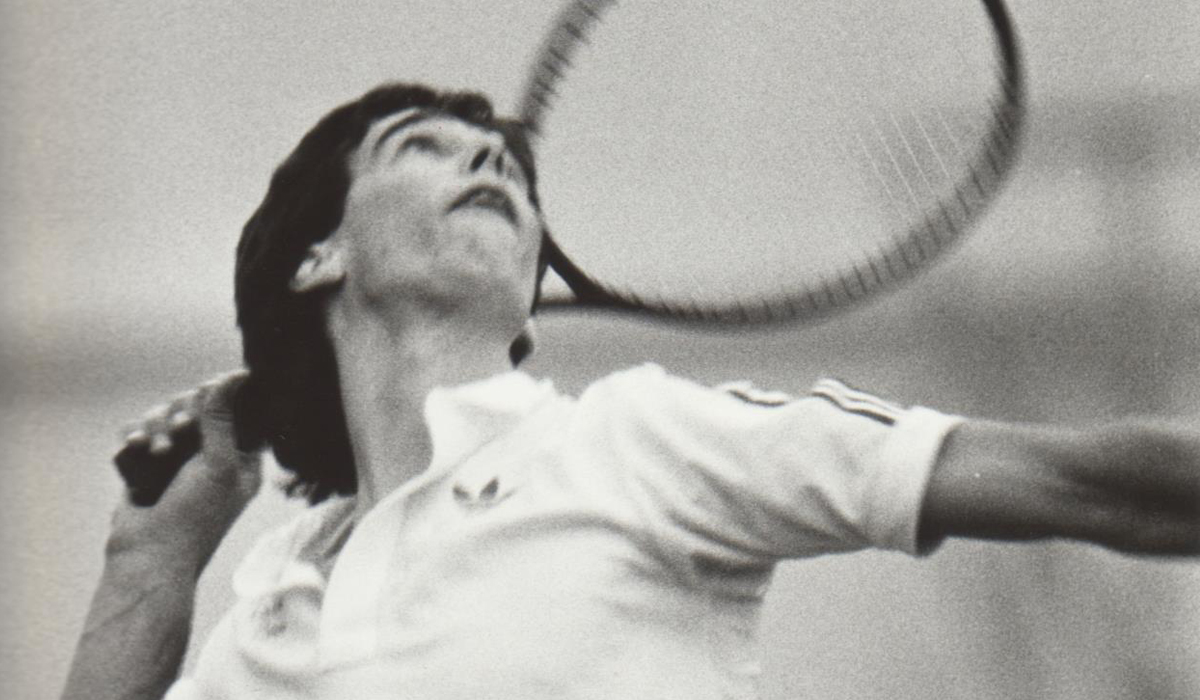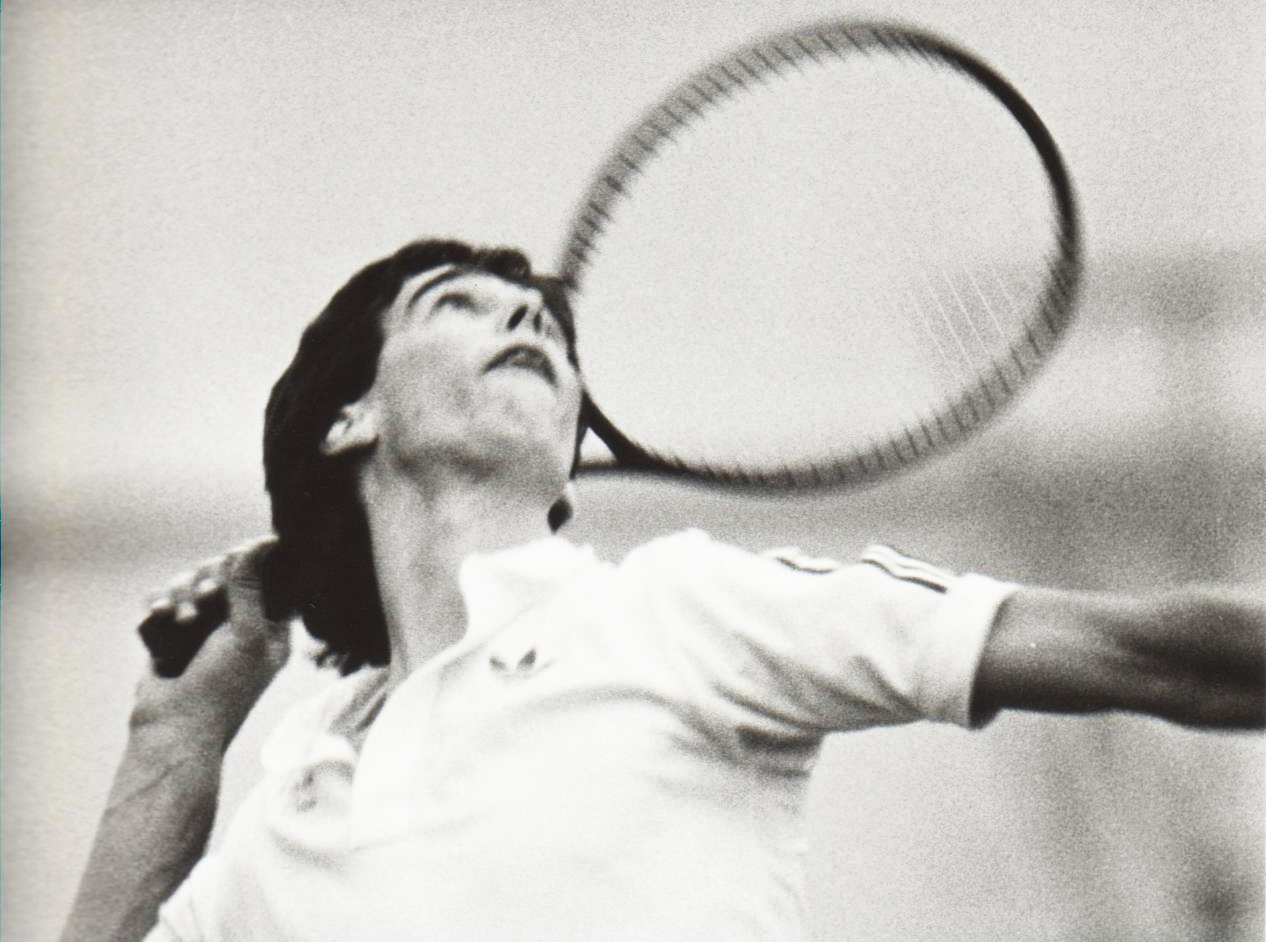Razorback Men’s Tennis Student-Athlete (1984-87)
Owner Ready Flow Printing (Rogers, Arkansas)
Father of 3 Razorback Student-Athletes
Part 1 of 2
I was 17 when I first heard about the University of Arkansas. I was the youngest person to get a world ranking in tennis, ranked 770 in the world. A young friend of mine came to New Zealand to play professional tennis and told me I needed to go to the (United) States and play college tennis. My friend told me that there are universities all over America that will give you a tennis scholarship and you can play for them.
He sent me 200 universities that would make sense that I play for them. So I wrote 200 letters to schools all over America and I got three replies from schools that were in the top 20. They were Clemson, TCU and Arkansas. Coach Tom Pucci called me up in 1982 and we had a great conversation.
I just remember a lot of enthusiasm and energy. I thought this guy is just a positive, upbeat guy, and I got fired up about it. Coach (Pucci) told me that my job is to come to the U.S. and when I land on U.S. soil, I’ll fly you into Fayetteville. Six months later I ended up in Melbourne Beach, Florida, I went down to a 7-Eleven and put a quarter in the phone and called Coach Pucci. He told me I was coming up this weekend. He put me on a flight from Florida into Fayetteville on Skyways. I ended up driving from Florida to Dallas, Texas and never saw a hill. Then I landed in Fayetteville and Coach drove me straight to the tennis courts, which at the time were right in front of Pomfret Hall by where Bud Walton Arena is now.

In the first 10 minutes, I met my two closest friends to this day, Bobby Banck and Tim Siegel. They were both U.S. Davis cuppers and some of the best juniors in America. Fast forward 35 years later and these guys are still my best friends to this day. I have so much to thank Coach Pucci for as he literally changed my life by bringing me here. I stayed in Fayetteville for three days, Coach Pucci offered me a scholarship and I took it immediately. I didn’t even contact the other schools. I loved Pucci, loved the guys on the team, loved driving around the Ozarks and the Boston Mountains for a couple days. It just felt like home to me. It was a great atmosphere with the people. The people were so nice and I thought to myself that I had found a new home.
I went back to Florida, came back and went right into surgery for an elbow operation. I struggled at the beginning. There were eight guys on the team and I was No. 8. The Hogs at the time were ranked eighth in the nation. In the early 80s we were top 10 every year and that was why I was here. I ended up No. 1 my senior year.

Coming from a very sheltered background, there were many athletes that were looking at the University of Arkansas and coming from similar backgrounds as mine. If you’re a foreigner coming to America you’re a bit of a fish out of water. You don’t understand the Americans or the culture including all the yelling and screaming, Calling the Hogs, and the football and the basketball. It’s new and different. You don’t quite get it.
My first year I was very shy. I was very naive. It took me a while to fit in. However by the time that I redshirted my first year and played four years after that, I ended up No. 1 at the end of it all. What I learned out of this, was the incredible work ethic that both Coach Pucci and Coach Ron Hightower had. We were up early and we were in the gym early. We would go to class, have practice for three hours and then run Cleveland (Street) and hit the weight room. Practices were intense. The number one thing I got out of it was the incredible camaraderie that I developed with all my friends. The closest friends I have are the people I met in Fayetteville between 1982-87. I’ve carried these friendships with me throughout my whole life. I can relate to these guys, because we were in the trenches together doing all this training together and traveling. It takes dedication, discipline and focus combined with the drive and desire. All these things that I learned as a college athlete playing tennis for the Razorbacks, I have applied those things to the business world.
I tried to make it as a tennis player after I graduated and gave it a shot for a year. I never made it, so at 23 years old, I was a failed athlete. I was angry at myself because I hadn’t achieved the goals that I wanted to achieve. My goal was to be top 100 in the world, but I got to No. 700. I moved to Dallas and got into the business world, starting over from scratch.

Business is no different than college sports. There are people that succeed and people that fail. You have to have the same characteristics that make you a great athlete, and if you take those into the business world you can achieve great things. You have to work hard and it’s the little bit extra that you do that is going to separate you from everybody else. The other thing that I learned that helped me a great deal was that communication is the key. Sitting through many team meetings that included heated discussions and debates, only helped because then you know where people stand.
I think the great thing with college sports is that it teaches you about yourself, who you were made. Do you want to be the last guy on the court or not? How do you handle the exhaustion? Do you dig and become stronger? Once you know how you are, then you can build around your weaknesses, so then as a team you aren’t weak.
Part 2 of Simon Robinson’s story.
Training Ground For Life Series
Kicking the Door Down: By Pat Bradley: Click here to read
Game Time: By Celia Anderson: Click here to read
Training Ground For Life: By James Johnson: Click here to read




